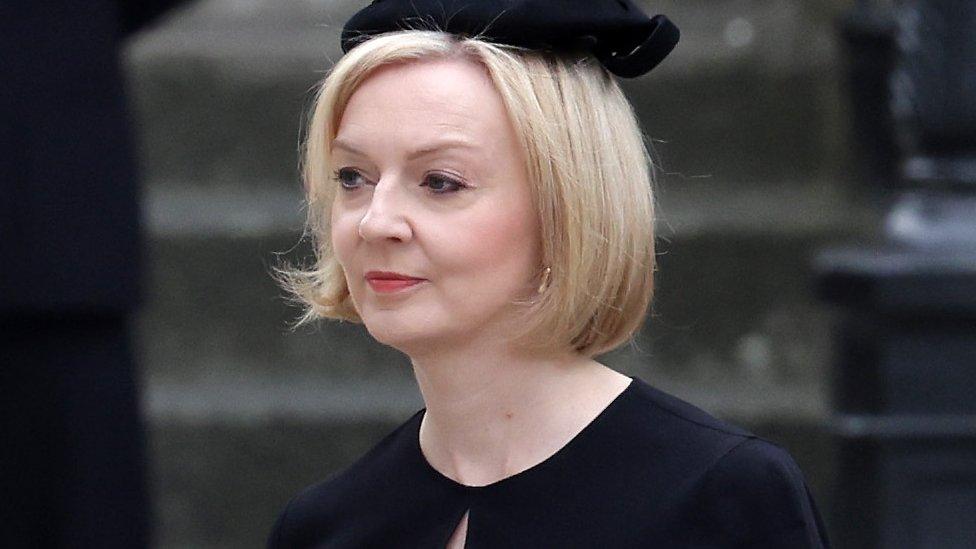What could 2023 hold for Scottish politics?
- Published
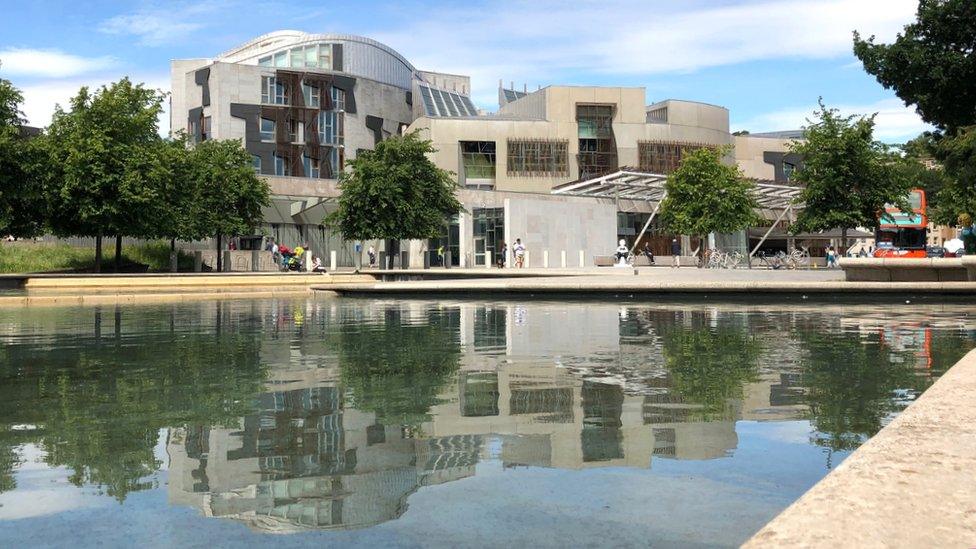
2022 saw plenty of drama at Holyrood - will the coming year bring more of the same?
2022 could scarcely have been a more dramatic or eventful year in politics - featuring three prime ministers, a Supreme Court showdown over independence and industrial unrest amid a cost of living crisis.
But with no elections or indeed referendums marked on the calendar for 2023, are we in for a quieter time of it? A glance at the government's bulging in-tray might suggest not...

Balancing budgets
Every year starts with fiscal wrangling, in the build-up to MSPs agreeing the Scottish government's annual budget in February.
The SNP-Green administration has the votes to pass any proposals it likes, but the debate will still be an intense one this year given the backdrop of a recession and a cost of living crunch.
Local authorities will set their budgets first. They have been given free rein to raise council tax rates, and given they have already voiced concerns about their allocation from central government it looks likely that many could opt for sharp increases.
Another cash-raising option for councils in future may be the establishment of "tourist taxes" in certain areas, with the government promising to table a Local Visitor Levy Bill in the coming year.
MSPs will pass the budget bill in February, as well as a rates resolution which will give effect to the planned tax rises from the start of the new financial year at the end of March.
Talk of the economy is unlikely to end there, of course. First Minster Nicola Sturgeon's 2022-23 programme for government focused almost entirely on tackling the "humanitarian emergency" she warned was looming.
A major part of that programme was a rent freeze and evictions ban, and MSPs will need to decide in the coming weeks whether those temporary measures should be extended beyond March.
Passing legislation
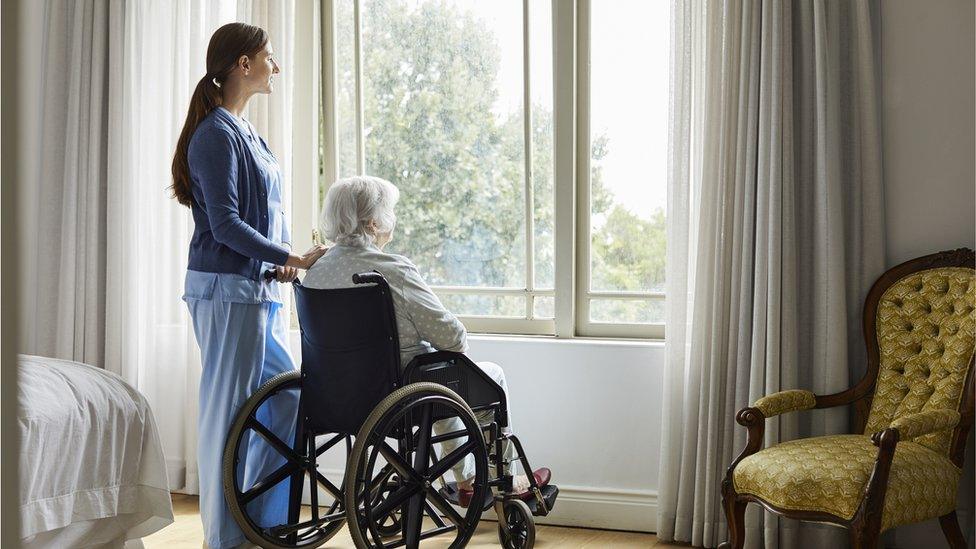
Ministers say a National Care Service would end a "postcode lottery" in adult social care across Scotland
Turning to bills of a different sort, there is plenty of legislation in the pipeline at Holyrood.
One of the government's flagship pledges for this session of parliament has been to set up a National Care Service, essentially doing for care what the NHS does for health.
But the plans have been dogged by questions over how much it will cost and exactly how broad the new body's remit will be. The government wants to pass a "framework bill" as a foundation on which to add further details, but MSPs from all parties have been clear they want to hear more specific plans as soon as possible.
Ministers are planning big reforms in the justice sector too, including the abolition of the not proven verdict in Scotland's courts.
A pilot project is also planned which would remove the use of juries in rape trials, as well as the establishment of a specialist court to deal specifically with sexual offences.
An education reform bill is also expected to set up a replacement for the Scottish Qualifications Authority and a new inspections body, in the wake of a series of reviews of senior-phase schooling.
Ms Sturgeon famously made closing the attainment gap between schools in better and worse-off areas her "number one priority", so there will be much scrutiny of the progress towards that - even if the way pupils are assessed may be changing.
There are also some notable members' bills under consideration.
Lib Dem MSP Liam McArthur is set to table legislation on assisted dying for terminally ill adults, and already has members of every party behind him.
Green member Gillian Mackay meanwhile has won the government's backing for her proposal to set up buffer zones around sexual health and abortion clinics, meaning it looks all but certain to progress.
And Labour's Paul Sweeney is drawing up plans for overdose prevention centres - otherwise known as safe consumption rooms for drug users - in a bid to cut the nation's record death toll.
The legality of such facilities has been in dispute for some time, but the Scottish government's top law officer, Lord Advocate Dorothy Bain, has said she will give "fresh consideration" to any plans.
Delivering on promises
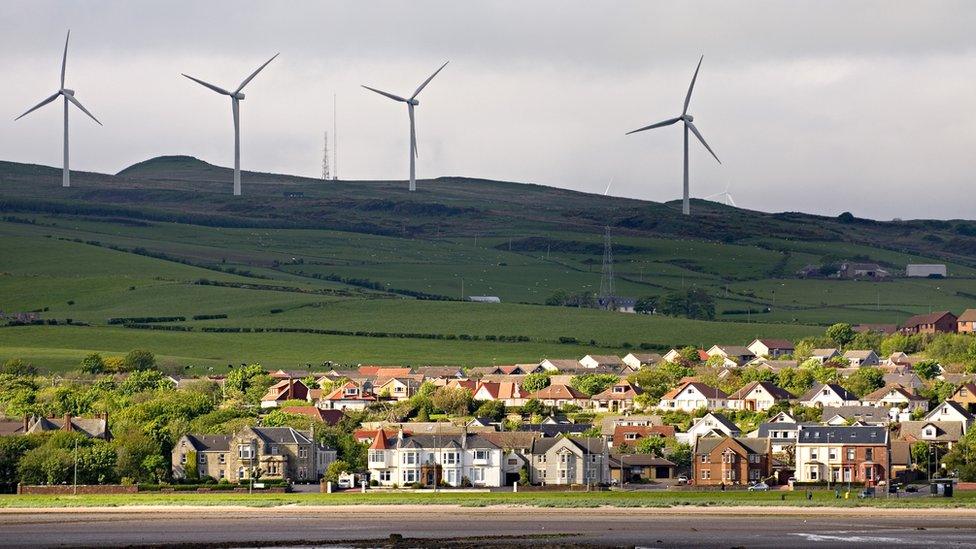
The government has made tackling climate change one of its key priorities
2022 ended with a series of marathon sittings at Holyrood as MSPs finalised gender reform legislation.
This concluded a political process which began in the SNP's 2016 manifesto, so has been a long time coming - but it may not be over yet, with the UK government and campaign groups pondering a legal challenge in the coming weeks.
A broader question may be whether the Scottish government can continue to deliver on long-standing commitments in the coming year.
One which is tied to the cost of living concerns is a plan to roll out free school meals to all primary pupils. This was originally scheduled for August 2022, but one teaching union now says it has been pushed back to 2024.
An updated Climate Change Plan has also been promised, in a bid to hit the government's ambitious targets for net-zero carbon emissions by 2045.
A key part of that will be debated in the coming days. MSPs are due to sign off a new planning framework in January which will prioritise environmentally-friendly applications such as wind farms and other renewable energy projects.
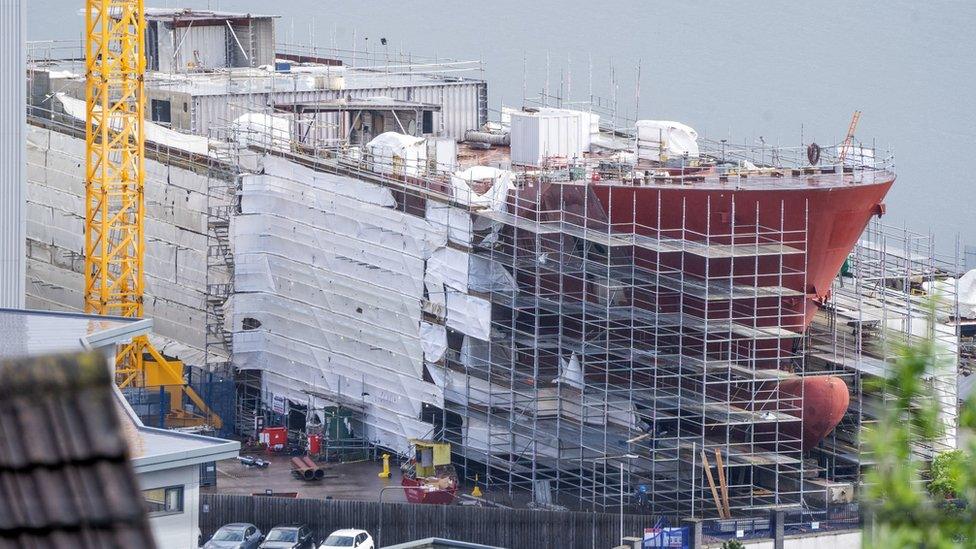
Two ferries are being built at the Ferguson shipyard in Port Glasgow
The government will also be keen to get the deposit return scheme up and running, amid further speculation, external that the recycling system may need to be watered down if it is to go live in August as planned.
And ministers will be desperate to avoid any further delays to the two lifeline ferries for island communities being built at the Ferguson shipyard in Port Glasgow, given how regularly the project is raised at Holyrood.
One of ships is due to be finished in the summer, while the "practical completion" of the second is now scheduled for December 2023 before it enters service in 2024.
And while there may not be big reforms planned for the health services, there will be much scrutiny of how well it can get back to something resembling normality given the dire warnings from some union leaders.
The government has put tens of millions of pounds towards improving waiting times, and how that affects the experience of patients using services will ultimately matter far more than the political rhetoric around it.
Constitutional politics
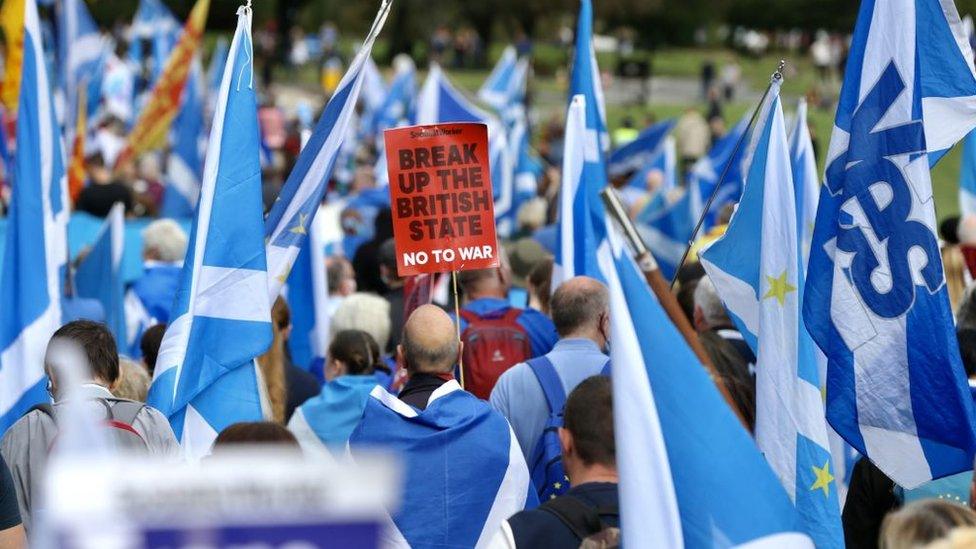
The independence debate will rumble on despite the lack of a referendum to centre it on
2023 is that rare beast in Scotland: a year with no big electoral events expected.
That is in itself rather controversial given the Scottish government really wanted to have an independence referendum in October, but has hit a brick wall in the form of a UK government which refuses to engage with the idea.
The SNP is due to focus on how the constitutional question can be put to the public at its spring conference in March.
There is some debate within the party about whether a Westminster election is the best vehicle for a "de facto referendum", and about how such a contest could actually deliver independence.
That UK-wide ballot is not expected until 2024, but with Labour and the Conservatives also building their platforms ahead of the struggle for Downing Street there will be no shortage of politicking throughout 2023.
- Published23 December 2022
